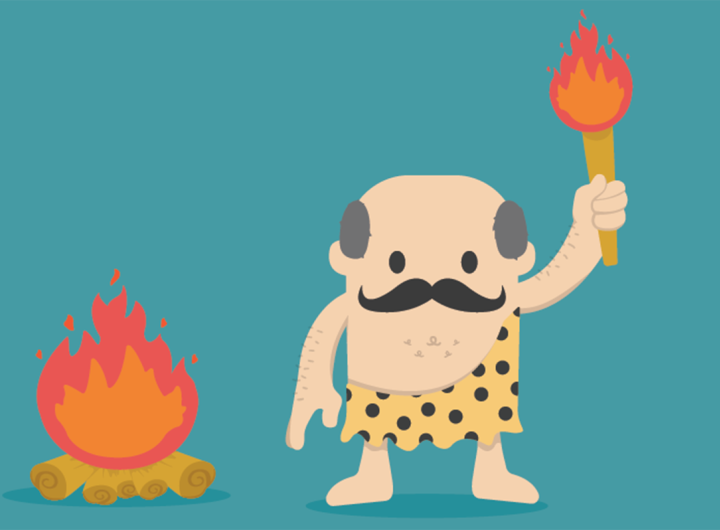
Prehistoric clues to a better future for dads & families
From a modern-day perspective, it seems that our growing awareness that fathers play a crucial role in parenting is a new thing. But it turns out that having hands-on fathers is partly what makes us human.
There’s no doubt that fatherhood is changing. For example, in the U.S.A., there are an estimated 200,000 married stay-at-home dads, and around 1.9 million single dads (16 per cent of single parents). In Australia, the number of stay-at-home dads has doubled in the last decade, and dads also make up 16 per cent of single parent families. In the U.K., there are now a whopping 10 times more stay-at-home dads than there were in 2001. You get the idea.
Just recently, the Los Angeles Times ran a story called “Five things pediatricians want dads to know about parenting”, an asier-to-read summary of an academic paper called Fathers’ Roles in the Care and Development of Their Children: The Role of Pediatricians. The researchers took a detailed look at many studies done over the last decade examining the important role played by involved and caring fathers (residential and non-residential, and also including stepdads, carers and grandfathers) in building children’s physical and mental health.
The funny thing is, some anthropologists say it was only when males started becoming more directly involved in caring for their offspring — a couple of hundred thousand years ago — that modern human characteristics, including bigger brains, could develop and the population could increase.
So this ‘recent’ phenomenon of the fully-involved father may not be as new as we thought!
In any case, the five things doctors want dads and other father figures to know, in a nutshell, are:
- Talk to your kids
- Play with your kids
- Set a good example
- Keep your vaccinations up to date
- Get screened for depression.
While the first four may come as no surprise, the research also explained in more detail why fathers and mothers tend to bring different elements into the parenting equation. For example, dads can introduce new, unfamiliar words into a child’s vocabulary, and may prefer more rough-and-tumble, rowdy play.
But it’s that last item I especially want to talk more about. This year a new campaign has been launched around the inaugural International Fathers’ Mental Health Day, and Men’s Health Week in Australia, to raise awareness of post-natal depression (and ante-natal anxiety and similar issues) in men.
Research indicates that post-natal depression affects at least one in 10 dads – and many of them to suffer in silence, or turn to drugs or alcohol.
Like depressed moms, depressed dads will find it hard to bond with their children. While diagnosis and treatment of depression and anxiety in mothers has come a long way, including a much greater willingness to talk openly about the issue, we can’t yet say we’ve got to the same point with dads. Ultimately, the longer treatment is delayed the longer the recovery takes, and by that time the family unit may have broken down. So mothers and kids are suffering too.
Ideally, with increased awareness among the community and health professionals, we can provide mental health screening and services to all parents, male and female, and help them create happy and healthy environments for their kids.
Parenthood can be tiring and sometimes challenging, but overall should be enjoyable. So let's support dads, and families, and look towards an even better future.